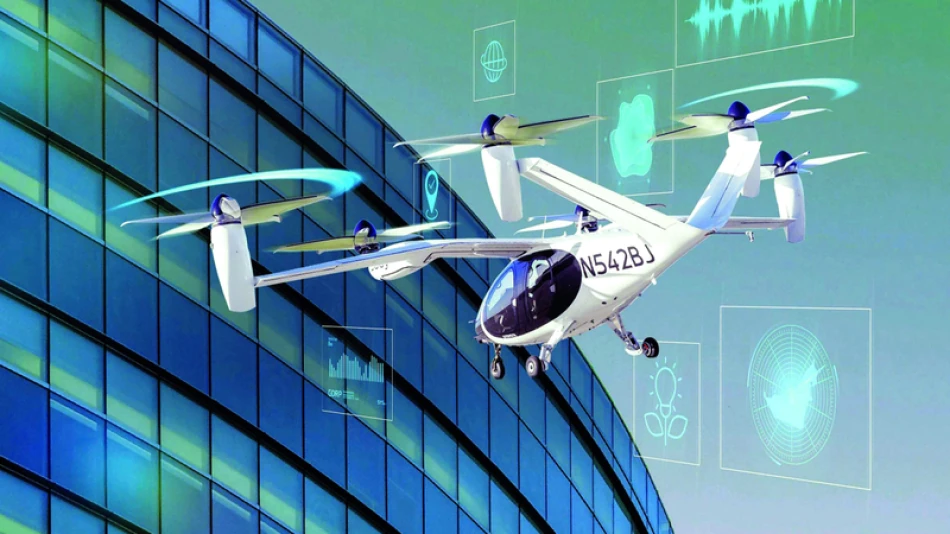
Dubai's Roads Authority Showcases 11 Pioneering AI-Driven Projects at GITEX Global 2025
Dubai's Roads and Transport Authority (RTA) is showcasing 11 cutting-edge projects at GITEX Global 2025, running through October 17 at Dubai World Trade Centre. The initiatives demonstrate how the emirate is building its smart city infrastructure through AI, Internet of Things, and predictive analytics — from aerial taxis that cut travel times by 75% to automated vehicle inspections that slash processing time from 17 to 7 minutes.
RTA Director General Mattar Al Tayer said the projects align with Sheikh Mohammed bin Rashid Al Maktoum's vision to make Dubai the world's smartest and happiest city. The authority is working on a comprehensive digital transformation strategy that uses emerging technologies like IoT, AI, big data, and predictive solutions to provide proactive services that improve quality of life.
The smart vehicle network (UTC-UX Fusion) represents one of the region's most advanced traffic management solutions. Operating from Dubai's Smart Traffic Systems Centre, the AI-powered system provides predictive traffic control using real-time data analysis. It supports multi-modal transport and uses C-ITS technology to exchange data between vehicles and connected infrastructure. The system has reduced delay times by 25% and cut operational costs by 20-30%.
The AutoCheck360 automated vehicle inspection system uses computer vision and IoT to minimize human error and standardize inspection criteria with unprecedented accuracy. By cutting inspection time from 17 to 7 minutes, it improves service efficiency and enhances road safety. The system is among the first integrated smart solutions of its kind in the region for automated vehicle inspection.
Dubai's aerial taxi service using the Joby S4 aircraft offers vertical takeoff and landing capabilities. The company has begun trial operations to test the vehicle in local conditions before launching commercial service within the city. A trip from Dubai International Airport to Palm Jumeira will take about 10 minutes, compared to 45 minutes by car. The service will integrate with various public transport modes and individual mobility options like electric scooters and bicycles.
The Smart Transport Platform for Safe Cities is a centralized system powered by IoT and AI technologies that monitors and manages commercial transport, including delivery bikes, school buses, and commercial transport activities. The platform analyzes data from IoT devices about speed, route compliance, and driver behavior, while AI analyzes this data to detect unsafe practices and take immediate corrective action.
The trackless tram project showcases RTA's leadership in anticipating the future of smart public transport. The system operates without fixed tracks, using visual navigation technology, GPS, and LiDAR to track virtual paths with high precision. The project relies on AI to detect obstacles and guide the vehicle automatically, providing high operational flexibility and exceptional traffic flow at lower operating costs than traditional tram systems.
The Automated Railway Infrastructure Inspection System (ARIIS) uses mobile devices that rely on laser scanning and computer vision to detect defects with microscopic accuracy. This is the first system of its kind in the region to use smart analytics to provide data-driven recommendations. It has reduced inspection time by 70% and raised safety and operational standards for Dubai Metro.
RTA is also highlighting its integrated digital ecosystem, led by the "Suhail" app — Dubai's shared digital mobility channel that provides access to all public and private transport modes in one platform, including trip planning and taxi booking. The authority is also showcasing its "RTA Dubai" smart app, considered among the most comprehensive government smart applications.
Most Viewed News

 Sara Khaled
Sara Khaled






